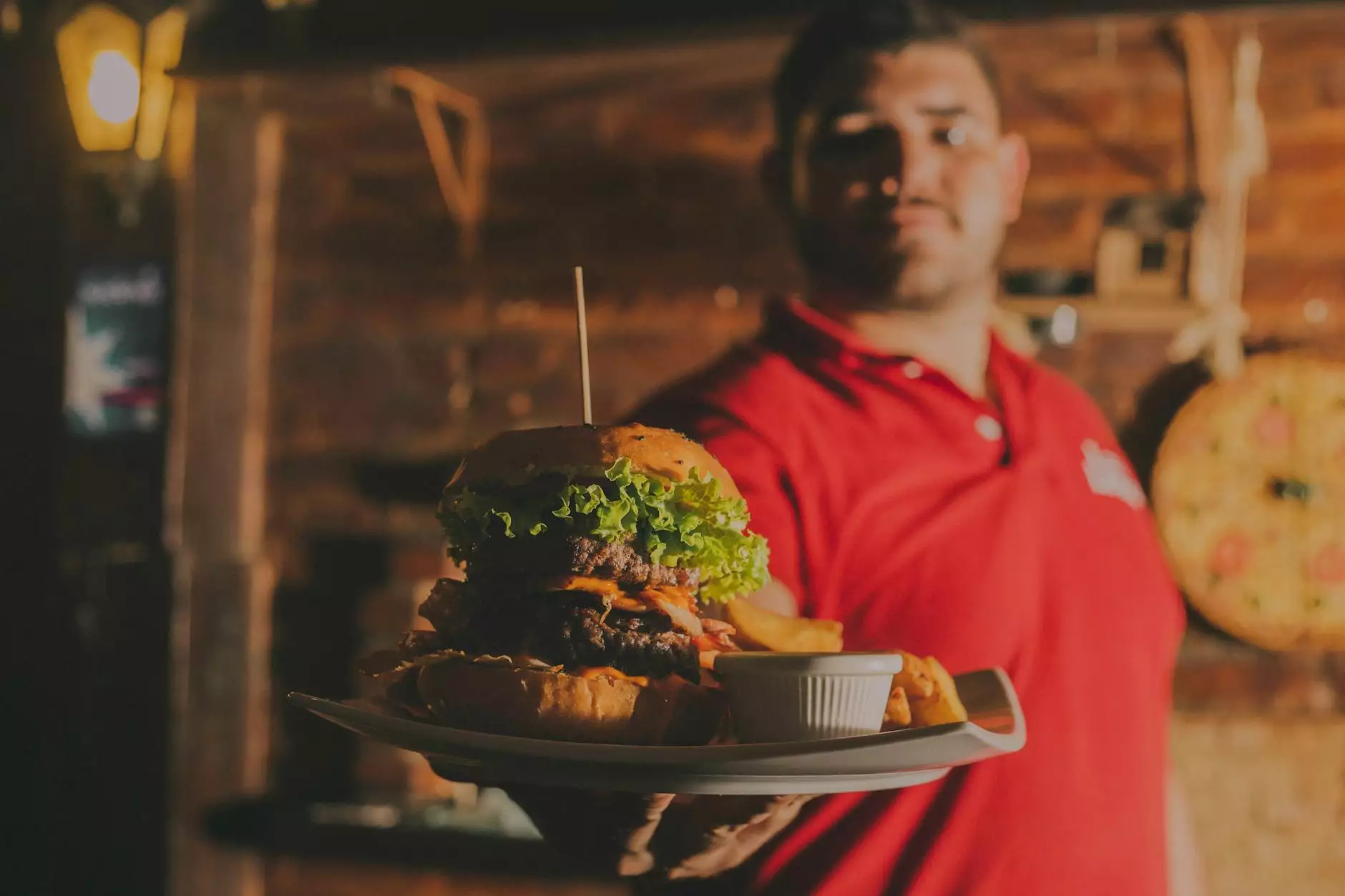Boost Your Burger Business with Effective SEO and Copywriting

Introduction
Welcome to 7inahenhouse.com, your ultimate guide to achieving success in the competitive world of restaurants, burgers, and fast food. In this article, we will explore the power of SEO, copywriting, and effective online strategies to help you outrank your competitors and attract more customers to your business. Whether you are just starting out or looking to ramp up your existing restaurant, this comprehensive guide will provide you with the essential knowledge and tools to increase your online visibility, traffic, and ultimately, sales. Let's dive in!
Understanding the Power of SEO
Search Engine Optimization (SEO) is the process of optimizing your website and its content to rank higher on search engine result pages (SERPs). When done right, SEO can significantly improve your online visibility and bring highly targeted organic traffic to your website. As a restaurant owner or manager, you need to leverage the power of SEO to ensure that potential customers can easily find and choose your business over your competitors.
Keyword Research and Optimization
One of the fundamental aspects of SEO is keyword research. By understanding the search terms that potential customers are using to find restaurants and fast food, you can optimize your website with relevant keywords. For your business, the keyword we will focus on is "shopping product." By strategically incorporating this keyword into your website's HTML elements such as headings, paragraphs, and meta tags, you can increase the chances of ranking higher on Google for related search queries.
Creating Keyword-Rich Content
Now that we have identified our target keyword, it's time to create content that incorporates it in a natural and user-friendly way. When writing copy for your website, ensure that the keyword is present in headings, subheadings, and paragraphs. However, be mindful of not overusing it, as keyword stuffing can have a negative impact on your search rankings. Instead, focus on creating high-quality, informative, and engaging content that provides value to your readers.
Optimizing HTML Elements
HTML elements play a crucial role in optimizing your website for search engines. Here are some key elements to focus on:
Title Tag:
The title tag is one of the most important HTML elements for SEO. It should be concise, descriptive, and contain your target keyword. For example, "Discover the Best Shopping Product Deals at 7inahenhouse.com."
Meta Description:
The meta description is a brief summary of your webpage that appears on search engine result pages. It should entice users to click through to your site. Incorporate your target keyword naturally within the meta description, highlighting the benefits of your shopping products.
Header Tags:
Use header tags (H1, H2, H3, etc.) to structure your content and make it more readable for both users and search engines. Each header tag should include relevant keywords related to your business, products, and services.
Paragraphs and Text Formatting:
Break your content into paragraphs to improve readability. Use HTML tags like , , and to emphasize important words or phrases. This helps search engines understand the context and relevance of your content.
Lists:
Lists, whether ordered or unordered, can help organize information and make it more scannable for both users and search engines. Use lists when appropriate to present features, benefits, or product descriptions in a clear and concise manner.
Driving Traffic and Converting Customers
Optimizing your website for search engines is only one piece of the puzzle. To attract and convert customers, you need to offer a seamless user experience, engaging visuals, and persuasive copywriting. Here are some additional strategies to consider:
Captivating Visuals:
In the world of food, presentation matters. Showcase mouthwatering images of your delicious burgers, enticing customers to visit your restaurant or place an order online. High-quality images can also be optimized with alt text, providing more opportunities for search engines to understand the relevance of your content.
Compelling Call-to-Actions:
Use persuasive copywriting techniques to encourage website visitors to take specific actions, such as "Order Now," "Find the Nearest Location," or "Sign Up for Exclusive Deals." A well-crafted call-to-action can significantly increase your conversion rates.
Online Reviews and Testimonials:
Showcasing positive customer reviews and testimonials on your website can build trust and credibility among potential customers. Encourage satisfied customers to leave reviews on popular review platforms, as this can also influence your search rankings.
Social Media Engagement:
Expand your reach and engage with your audience on social media platforms. Share enticing images, run promotions, and interact with potential customers to build brand loyalty and increase your online visibility.
Analyzing and Fine-Tuning Your Strategy
SEO is an ongoing process that requires constant monitoring and adjustment. Regularly analyze your website's performance using tools like Google Analytics to gain insights into the effectiveness of your SEO and copywriting efforts. Track metrics such as organic traffic, bounce rate, and conversion rates to identify areas for improvement.
Conclusion
By implementing effective SEO strategies and high-quality copywriting techniques, you can elevate your restaurant business to new heights. Craft engaging content, optimize your HTML elements, and provide an exceptional user experience to outrank your competitors and attract more customers. Remember, the world of SEO is ever-evolving, so stay up to date with the latest trends and best practices to maintain your online success. Start implementing these strategies today and enjoy the rewards of a thriving burger business!









